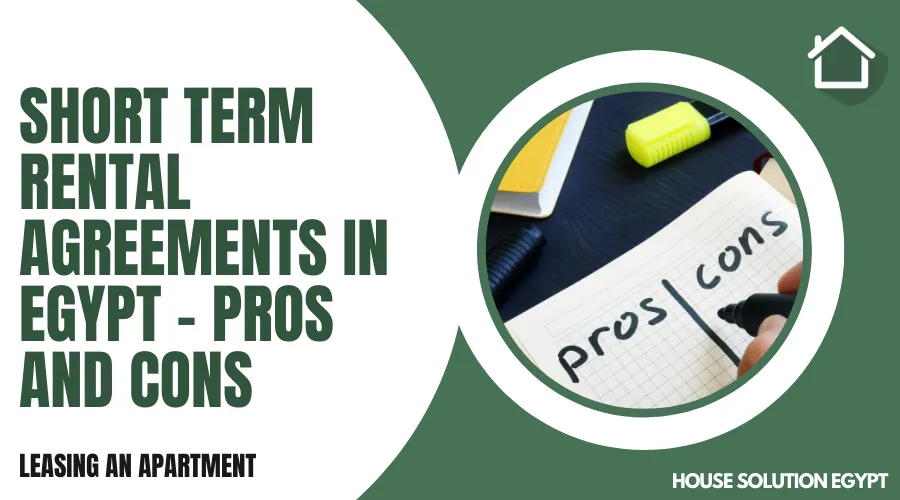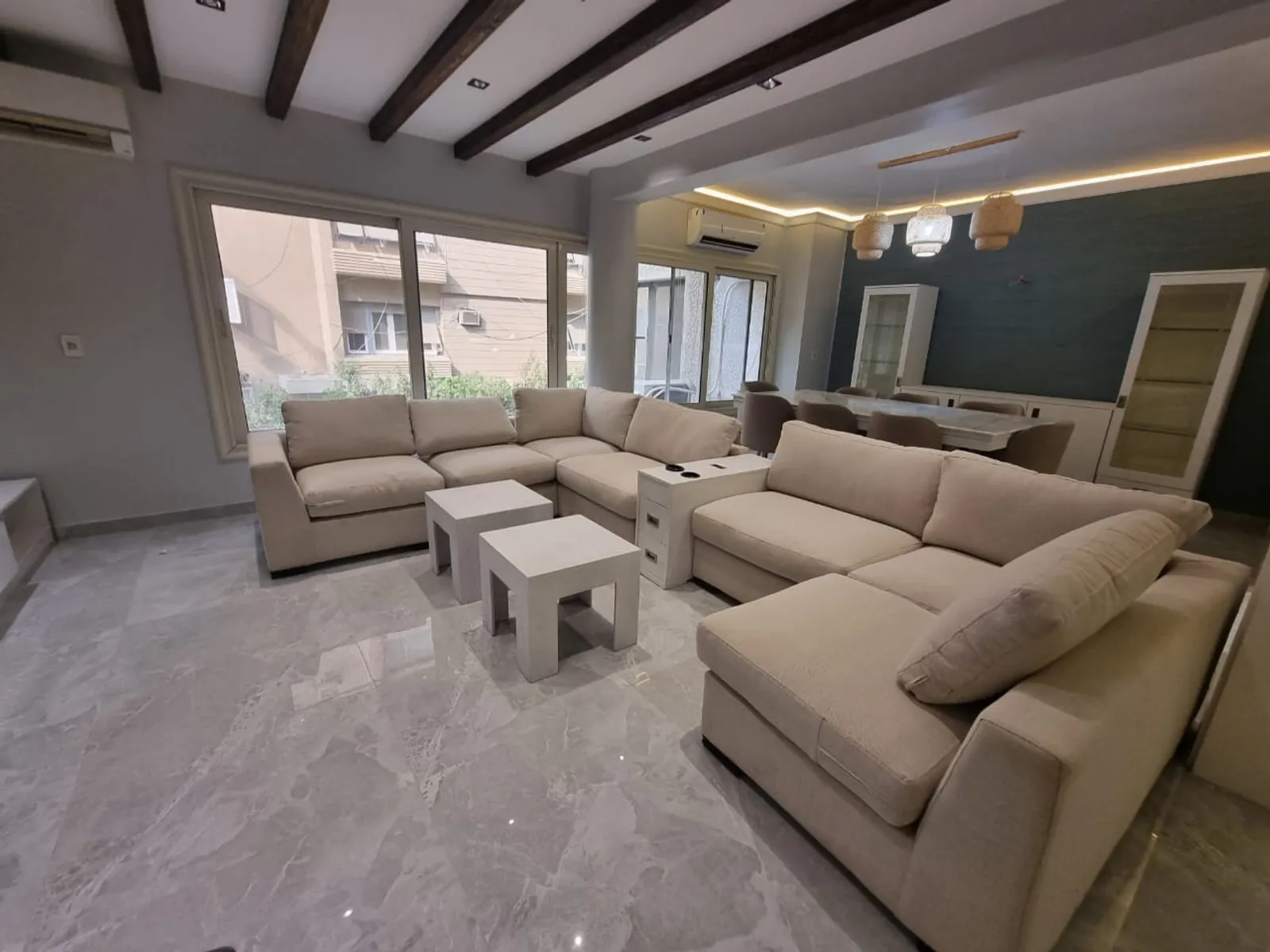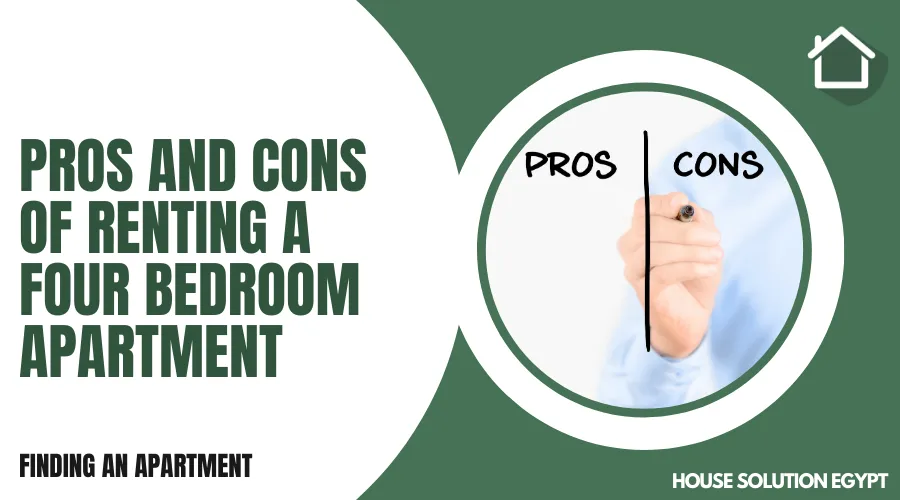LEARN MORE ABOUT MONTHLY BASIS RENTAL AGREEMENTS WITHOUT COMMITMENT
Renting an Apartment|6.2 MIN READ|Updated on: 22 April 2024|Written by: Marwa Samir
Monthly basis rental agreements without commitment are becoming increasingly popular, especially for those who may not want to commit to a long-term lease. With this type of agreement, tenants can rent on a month-to-month basis and have the flexibility to move out with just a 30-day notice period. This is ideal for people who may be in temporary work positions or looking for short-term housing solutions.
One of the benefits of monthly rental agreements without commitment is that they provide renters with more control over their living arrangements. It also allows them to avoid being locked into a long-term contract, which can often be difficult to break without penalties. Furthermore, it gives landlords the opportunity to fill vacancies quickly and easily as tenants come and go.
However, it's important for both landlords and tenants to understand the terms of these rental agreements before entering into them. While monthly rentals offer flexibility, they typically come at a higher cost compared to longer leases. Additionally, some landlords may require additional fees or deposits in place of the security deposit required for longer leases. Therefore, it's essential that both parties fully understand all aspects of this type of agreement before signing on the dotted line.
What is a Rental Agreement?
A rental agreement is a legal document that outlines the terms and conditions of renting a property. It sets out the rights and responsibilities of both the landlord and tenant and ensures that there is clarity on what is expected from each party. Rental agreements can be for varying periods, including month-to-month, six months, or one year.
Monthly basis rental agreements are popular among those who do not want to commit to a long-term lease. They allow tenants to rent properties without being locked into a lengthy contract, providing them with flexibility if their circumstances change. Monthly basis rental agreements typically require tenants to give 30 days' notice before vacating the property.
While monthly basis rental agreements provide more flexibility than long-term leases, they can also come with higher monthly rent costs. Additionally, landlords may prefer longer-term leases as it provides more stability for their income stream. Before signing any type of rental agreement, it's important to read through all terms carefully and ask any questions you may have to ensure you fully understand your obligations as a tenant.
Benefits of Monthly Basis Agreement
Monthly basis rental agreements without commitment offer several benefits for both landlords and tenants. One of the primary advantages is flexibility. Tenants can easily move out at the end of the month without having to worry about breaking a long-term lease agreement. Similarly, landlords can quickly find new tenants if the current ones decide not to renew their monthly agreement.
Another benefit of monthly basis rental agreements is for those who need a temporary living arrangement, such as students or people who are relocating for work. They don't have to commit to a long-term lease and can avoid paying penalties for early termination.
Moreover, monthly basis rental agreements allow landlords greater freedom in adjusting rent prices on short notice. If there is an increase in property taxes or maintenance costs, they can adjust rent prices accordingly without having to wait until the end of the year when long-term leases expire.
Overall, monthly basis rental agreements provide greater flexibility and convenience for both landlords and tenants while minimizing risk and commitment.
Types of Monthly Agreements
Monthly agreements are a popular choice for many renters who want to avoid long-term commitments. These types of agreements come in various forms, and it is essential to understand them before signing any contract. One popular type of monthly agreement is the month-to-month rental agreement. This type of agreement allows the tenant to rent the property on a month-to-month basis without committing to a specific length of time.
Another common form of monthly agreement is the fixed-term lease that automatically converts into a month-to-month lease at its expiration date. With this option, tenants can opt-out after the agreed-upon term, or continue renting with more flexibility than traditional leases. Finally, there are also short-term rental agreements that may extend up to six months in some cases.
All these types of monthly agreements have their advantages and disadvantages, depending on what renters are looking for from them. Some may prefer having no commitment while others may appreciate having stability and security through extended fixed terms or automatic renewals. Be sure you read and understand all terms and conditions before making any decision about which one best suits your needs as a renter!
Pros of Monthly Agreements:
1. Flexibility to terminate the agreement with minimal notice.
2. Potential to negotiate rent and other terms of the lease.
3. Ability to increase or decrease rent as market values change.
4. Sub-leasing or renting out space may be possible without breaking the lease agreement.
5. Renter can make changes in the property without having to worry about getting approval from the landlord.
Cons of Monthly Agreements:
1. Higher cost of rent compared to longer-term leases.
2. Difficulties in planning long-term if you are unsure when the agreement will end or be renewed again.
3. Lack of security in knowing how long the rental arrangement will last for both parties involved.
4 . No protections for either party against sudden changes in circumstances such as job loss, illness, etc., which could make it difficult for one party to keep up with payments or accept a new lease arrangement from another tenant who may be more
Advice for Renters
If you are a renter, there are many things you need to consider before signing a lease agreement. One of the most important aspects to look at is the rental terms and conditions. A monthly basis rental agreement without commitment can be an ideal option for renters who want flexibility in their living arrangements.
Such agreements typically allow tenants to rent a property on a month-to-month basis without having to commit to a long-term lease. This means that you have more freedom in deciding how long you want to stay in the property. It also gives you the chance to easily move out if your circumstances change or if you find another place that better suits your needs.
However, it’s important to read and understand all of the terms and conditions before signing any contract. Make sure that there are no hidden fees or clauses that may surprise you later on. Additionally, keep in mind that monthly rentals without commitment may come at a higher cost than signing an annual lease agreement. Overall, it’s essential to weigh up all of your options carefully before making any decisions about renting a property.
Conclusion
In conclusion, a monthly basis rental agreement without commitment is an ideal option for those who need flexibility in their living arrangements. It allows individuals to rent a property on a month-to-month basis, giving them the freedom to move out whenever they want without breaking any long-term lease agreements. This type of arrangement is particularly useful for students, young professionals or anyone who frequently travels and needs temporary accommodation.
Moreover, this type of arrangement can be beneficial for landlords as well. Since tenants have the option to leave at any time, landlords need to ensure that the property is always in good condition and up-to-date with market standards to attract new renters continuously.
Overall, Monthly Basis Rental Agreements Without Commitment offer both tenants and landlords a lot of flexibility and peace of mind. They provide an easy solution for those who require short-term housing while still maintaining that essential sense of independence that comes with living in their own space.






